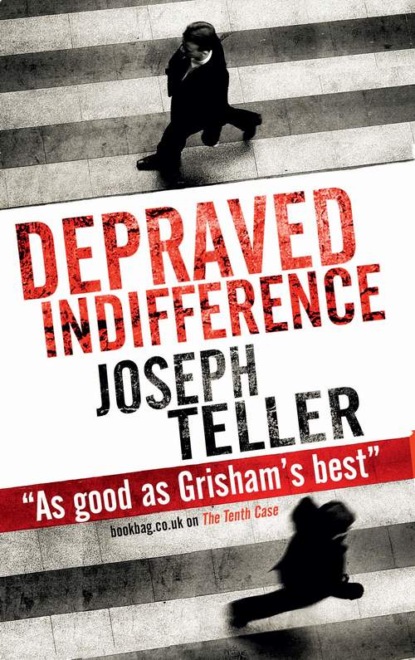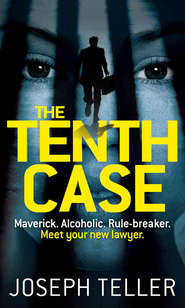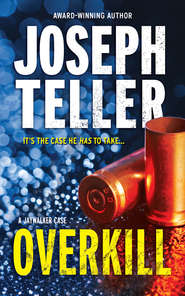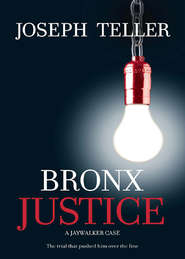По всем вопросам обращайтесь на: info@litportal.ru
(©) 2003-2024.
✖
Depraved Indifference
Автор
Год написания книги
2018
Настройки чтения
Размер шрифта
Высота строк
Поля
“Thank you for being up front about that,” said Mermelstein.
Jaywalker shrugged, his way of saying, Hey, it was the right thing to do.
“Actually,” said Mermelstein, “Mrs. Drake told me herself. And I have no problem with it. Not that I couldn’t use the publicity. But the truth is, I’ve never tried a murder case. Or even a felony, for that matter. So not only will I bow out gracefully when the time comes, but in the meantime I’ll appreciate all the help you can give me, until you’re—”
“Kosher?”
“I couldn’t have said it better.”
“Don’t plan on bowing out,” said Jaywalker. “I’m an outsider here, in more ways than one. You’re local, and you seem to have your head on straight. I’m pretty sure Amanda can be convinced of the virtues of a co-counsel arrangement.”
Mermelstein didn’t respond one way or the other, and they talked about the case for the next forty minutes. Jaywalker learned that the Drakes had found Mermelstein through an ad in the local Yellow Pages that touted him as an expert in criminal law, divorce, real estate, immigration matters, slip-and-fall cases, product liability, medical malpractice and dog-bite injuries. He’d tried and failed to get Carter’s bail reduced from the five million set at arraignment. The Rockland County D.A., a tough-on-crime Republican named Abraham Firestone, intended to make an example of Drake, hoping that sending him away for life would deter others from killing vanloads of children. And according to Mermelstein, Firestone intended to try the case himself, if there had to be a trial, rather than assigning it to one of his assistants, as was the customary practice.
“I notice Drake’s charged with drunk driving,” said Jaywalker, “in addition to murder.” He didn’t mention the leaving-the-scene charge, or the unlicensed operator, or the uninsured vehicle. Those charges ranged from the mundane to the serious. Leaving the scene of an accident resulting in death, for example, was itself a separate felony. But all of those acts or omissions were either after the fact or merely incidental to the murder charge. Drunk driving, on the other hand, especially when combined with indications of recklessness, could be used to show a depraved indifference to human life, a necessary statutory element of proving murder in a vehicular homicide case in New York State.
“That’s right,” said Mermelstein.
“But Drake didn’t surrender until sometime the following day, did he?”
“Right again,” said Mermelstein. “And his big-shot business lawyer issued a press release announcing to the world that his client hadn’t had anything to drink before the accident.”
“So help me out here,” said Jaywalker. Early on in his career, he’d had occasion to wonder why anyone would leave the scene of an accident, when doing so was a crime and sticking around to face the music wasn’t. The answer, he soon learned, was pretty simple. The ones who fled did so because they were drunk, unlicensed or uninsured, or because they’d just robbed the bank around the corner and had the money on the front passenger seat and a loaded gun on the floor. Getting away, even for a limited period of time, gave them an opportunity to hide the evidence. And part of that evidence was the alcohol in their blood. Ted Kennedy may or may not have been testing his swimming ability that night long ago at Chappaquiddick, but by the time he turned himself in the following day it was too late for the police to draw a meaningful, or admissible, blood sample from him. And even if it hadn’t been, he could have claimed that the incident had so upset him that he’d poured himself a couple of stiff drinks as soon as he got home. Exactly as the captain of the Exxon Valdez had maintained after his little mishap up in Prudhoe Bay.
“It seems Abe Firestone has done his homework,” said Mermelstein. “He had the troopers trace Drake’s movements over the twelve hours preceding the crash. Apparently they can put him in a sports club over in Nyack. And the sport he and his buddies were engaged in seems to have consisted of seeing who could throw back the most shots of tequila before falling on the floor.”
“Wonderful,” said Jaywalker.
They talked for another twenty minutes, following which Mermelstein made Jaywalker copies of whatever documents he had in his file. There wasn’t much: the felony complaint, Drake’s rap sheet, a summary of an accident report prepared by the state police and a couple of other pieces of paper.
“Firestone hasn’t exactly flooded you with discovery,” Jaywalker observed.
“Abe?” said Mermelstein. “He’s so tight his ass squeaks when he walks.”
They exchanged goodbyes and promised to share anything either of them found out.
“And give my best to Amanda,” said Mermelstein.
“I will,” said Jaywalker, noticing that she was suddenly no longer Mrs. Drake, and wondering if she’d followed Judah Mermelstein around for two days and then slept with him, too, before hiring him.
Nah, he liked the Yellow Pages story better.
From Judah Mermelstein’s office, Jaywalker headed west and then north, toward the site of the accident that had claimed nine lives. He drove carefully, not because he was afraid of becoming a tenth victim, but because his Mercury was pretty much on life support. Owning a car in the city was something of a double-edged sword. You didn’t need one to get around, and with parking impossible and garages charging a fortune, you were better off without one. Until you had to get somewhere else.
So Jaywalker had compromised. He’d bought the cheapest car he could find, a ‘57 Mercury with no extras and, so far as he knew, the last remaining three-speed manual transmission in America. Then he’d found an open-air parking lot so far over on the West Side that you had to hike halfway to New Jersey just to get there. He’d bargained the manager down from the usual hundred and twenty-five a month to seventy-five dollars cash, no tax, explaining that since he almost never used the thing, they could bury it way in the back, where it would take about a week and a half to get it out. And because he started it up so rarely and drove it even less, it performed, well, about like a neglected ’57 Mercury with 185,000 miles under its belt. So when he did drive it, he tended to creep along. But even creeping, it took him less than twenty minutes to get from Judah Mer-melstein’s office to the spot marked with a black × on the accident-report summary.
It was nothing but a bend in the road, where the northbound lane had little room for a shoulder. About all that separated it from the drop-off was what remained of a low guardrail, its metal twisted grotesquely and torn away where the van had breached it. There were a handful of makeshift memorials marking the spot—flowers, candles, other stuff. Jaywalker found a place to pull over a hundred yards or so past it, and shut off the Merc’s engine. From there he walked back to the site.
There were eight memorials. One, he guessed, for each child that had died there. He’d seen others like them often enough before—arrays of crosses, flowers and jars containing candles—but only from the cocoon of a car, as he sped by on the highway. Though he’d known what they signified, they hadn’t really touched him. Now, up close, they were something very different. There were Bibles—Old Testaments, no doubt. There were hand-written notes from classmates. There were framed color photographs of smiling children who would never smile again. There was a tiny pink party dress with matching shoes, possibly never worn. There were a couple of stuffed animals, a bear and something that looked like a cross between a small rabbit and a large mouse. There was a leather baseball glove, complete with five impossibly tiny fingers.
The earth leading downhill from the torn-away guardrail was still scarred, and down the embankment there were a couple of trees with fresh damage visible. And then a large, circular charred area, where new grass was just beginning to sprout through the blackness. And there were boulders, big enough, jagged enough and numerous enough to insure that the tumbling van had never had a chance of finding a safe landing spot.
There was a reason why they’d called it Rockland County.
He’d brought a camera along, an old Nikon his daughter had given him years ago when she’d gone digital. As far as he knew, it was the last one left in the world that still took a roll of real film. He snapped a few photos of the scene. Not that there was much of a reason to do so. The police would have taken dozens, and the defense would get copies in due time. But Jaywalker was an investigator today, and it seemed like an investigator-like thing to do.
Then he walked back to the Merc and headed south, to the city.
That night Jaywalker went over his notes and took stock of his investigation. Over two days, he’d familiarized himself with the newspaper accounts of the case, conferred with both of the lawyers who’d represented Carter Drake so far, gotten hold of a few sheets of paper and visited the scene of the crime. Even if it was a good beginning, it had turned up nothing really useful. Still on his checklist were subpoenaing police reports, locating and interviewing witnesses, and researching the law on precisely what it took to elevate a motor vehicle accident into a murder case.
But all of those things could wait a day or two. The next order of business would take Jaywalker back up to New City. Knowing that, and figuring he’d be using the Mercury on a more or less regular basis, he decided he might as well park it on the street. But that was a momentous decision, given that he lived in Manhattan. He spent the next forty-five minutes searching for a legal parking place. Every empty spot turned out to be a fire hydrant, a bus stop or the private driveway to some building. Twice he had to get out and squint at the fine print on the alternate-side-of-the-street parking signs, which were obviously intended to entrap the unwary motorist. Did NO PARKING 10AM TO 11:30 AM MON AND THURS mean you could park there at other times? Or was that sign subject to the one above it that said NO STANDING 4 PM TO 7 PM? And since both of them included the red-letter warning TOW-AWAY ZONE, it appeared to matter.
Back up in his apartment, more or less legally parked, Jaywalker had made a dozen phone calls just to find out what credentials he’d need and what procedures he’d have to follow for what he was planning to do. Next, he’d gone onto his computer and, using a mix of type fonts, print sizes and images, and about two hours of unbillable trial-and-error labor, had managed to create a rather impressive-looking identification card.
Private Investigator in the STATE OF NEW YORK…
HARRISON J. WALKER
In the lower right-hand corner, Jaywalker glued a photograph of himself. He looked younger in it, and a lot less gray. Then again, it had to be at least a dozen years old. He knew that because he’d clipped it out of a photograph of him and his wife, after silently begging her forgiveness. Now, as he admired the laminated and trimmed results of his handiwork, he thought of her again and decided she’d be understanding about it.
Not that he believed in any of that afterlife stuff.
He’d avoided the temptation to fill in the blank following “Sex” with “Yes” or “Hoping” or anything else stupid. He’d been equally careful to omit the modifier “licensed” right before “private investigator.” Other than the one that permitted him to drive, the only license Jaywalker had was currently suspended, so using the term could easily get him into trouble. Make that more trouble. Since he was already on probation of a sort, all he needed was to commit one more transgression. And this one would have been a whopper, a felony, in fact. Criminal Impersonation, they called it, and it carried four years. Not that they’d have given him all of that. But he certainly could have wound up in jail.
Which struck him as just a bit ironic, since that was precisely where he intended to wind up next. Because tomorrow morning, at ten o’clock sharp, Jaywalker had an appointment at the Rockland County Jail to have a face-to-face with Carter Drake.
Chapter Four
Jimmy Chipmunk
“What the fuck is this supposed to be?”
For a moment there, it seemed that the corrections officer at the outer gate wasn’t nearly as impressed with Jaywalker’s identification card as Jaywalker himself had been the evening before. But after twenty minutes’ worth of calls to the man’s supervisor and his supervisor’s supervisor, as well as to Amanda Drake and Judah Mermelstein, Private Investigator Jaywalker was finally buzzed in, to begin another half hour of being searched, signing forms and waiting.
When he was finally escorted through a long underground corridor and up a flight of steps to the visiting room, Jaywalker discovered that his meeting with Carter Drake would be a face-to-face one in only the most literal sense. In order to actually speak and be heard through the three-quarter-inch, wire-reinforced, bulletproof glass separating them, they’d have to use a pair of black phone receivers with frayed cords and exposed wires, things that had likely been around since the days of Alexander Graham Bell.
“Hi,” said Jaywalker.
“Hello,” said Drake over the static. He was an athletic-looking man with blond hair that was just beginning to turn gray. A good match for Amanda, thought Jaywalker. And he was seeing Drake outside his element. He tried picturing him propped up behind a big mahogany desk, or at the end of a long boardroom table, instead of inside a cubicle at the Rockland County Jail, but it wasn’t easy to do. Jail had a funny way of making you look like you belonged there.
“My name is Jaywalker. I’m a private investigator at the moment. Seven or eight months from now I expect to be a lawyer again, and your wife would like me—”
“My estranged wife,” said Drake.
“Oh?”
“We’ve been separated for five months now.”
Jaywalker considered the implications of that for a moment. It might make Amanda a more credible witness if he were to put her on the stand. She could come off as hostile enough to Carter to have left him, but at the same time she could back him up on any factual or character matters. And for another thing—








